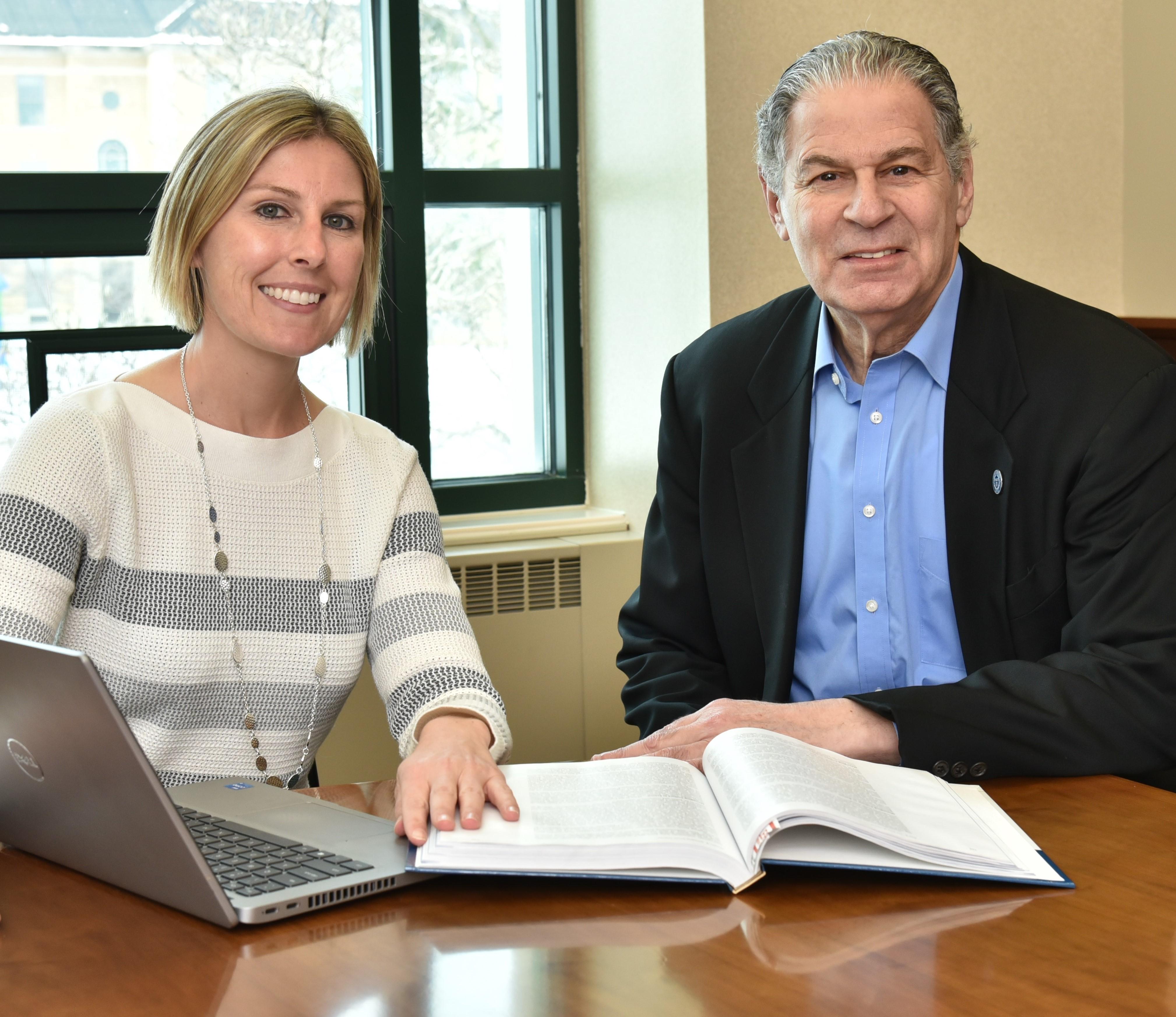SUNY Oswego School of Business faculty members Kristin Lee Sotak and Barry A. Friedman recently published research based on the question: When people see what you’re wearing, do they think you're ethical?
Sotak and Friedman published their research in the Journal of Business Ethics with co-authors Andra Serban from Virginia Commonwealth University and Michael Palanski from Rochester Institute of Technology. “Perceptions of Ethicality: The Role of Attire Style, Attire Appropriateness, and Context” explains that attire style, appropriateness and context all play a role in shaping others' perceptions of ethicality.
Researchers looked at casual, business casual and business formal attire in the multi-study project. They found business casual –- the only style with only positive perceptions -– seemed to represent the “happy medium” between casual and business formal.
The project, drawing conclusions from 323 participants, showed that people perceived casual attire as less ethical compared to business casual attire. With business formal attire, sometimes people had positive perceptions –- finding it trustworthy –- but others had negative perceptions, thinking people wearing it were unethical.
“Research shows that perceptions are formed in fractions of a second – even before we say something or before we hear someone speak,” Sotak said. “We can use this knowledge and the results from our study to learn how to best dress ourselves to influence these perceptions.”
“Most individuals, given a choice, would like to make favorable impressions and establish productive relationships at work,” Friedman said. “In fact, psychologists suggest that for some individuals, establishing meaningful work relationships is as important, sometimes more important, than the work itself. Being perceived as ethical is a good start when working with others.”
Years in the making
The project started in 2017, drawn from interests that included fashion and management. Sotak had recently read “Snakes in Suits,” a book about narcissistic leaders.
“We started brainstorming how clothing and style affected people in the workplace,” Sotak recalled. “One idea we had was to look at how attire influenced perceptions of leadership. We started to wonder what perceptions people had of others who were dressed in suits (or any business formal attire) – did they think they were ethical, or snake in suits?”
“Before my second career in academia, I worked in industry for 24 years. Home base was a button-down corporate headquarters, but I often found myself in manufacturing plants where wearing a tie was not only inappropriate but downright dangerous, as a tie around moving machinery could be hazardous,” Friedman noted.
“Entering academia, I wanted to understand how people make first impressions,” he added. “Before words are spoken, first impressions are often based on appearances -- including one’s attire. Then along came Kristin looking to study something very similar!”
Researchers gave subjects written vignettes with subjects in specific types of attire and in various industry conditions. Participants were randomly assigned a vignette to read and respond to in a survey. Respondents included SUNY Oswego alumni, and researchers thanked the university for emailing alumni for volunteers to help with this study.
“Individuals wearing business casual being seen as more ethical than people wearing casual or business formal was interesting -- regardless of the industry,” Friedman said. “Maybe business casual is perceived as a happy medium: neat enough to be respectful of others in a business setting –- but not so formal that people aren’t seen as ‘trying too hard’ to make a strong impression.”
“No one said anything bad about business casual,” Sotak said. “It seems as though dressing in business casual might be the safe space in terms of people thinking you are ethical, or even a good employee and person overall. Of course, you should always consider the context, or situation. Our research revealed that context is more complex than we initially thought, so you might want to consider where you are or who you are with. Ultimately think, ‘What impression do I want to give others?’”
Changing dynamics
The researchers also found changes in perceptions over time, resulting from COVID-19 challenges and changes in economic conditions. They collected some data in the first year of the pandemic, with other data collected a couple of years into the pandemic.
With the increase in remote work and other adjustments, attire expectations changed, with new work-fashion buzzwords coming around such as “power leisure” and “work leisure” and clothing retailers adapting to the new demands of hybrid work, researchers said.
Some research participants remarked about the changes in attire. One even noted that, during interviews for a job opening via Zoom, none of the candidates wore suits, although they still came across as professional. This seemed in stark contrast to pre-COVID interviews.
Researchers offered some caveats on how people should treat the results.
“Should we make rapid impressions of others with so little information?” Friedman said. “Of course not, but we’re only human.” And, he added, the results can encourage people to pause, collect more information and make more informed assessments of others, especially during the interviewing process.
“Perceptions are not reality,” Sotak said. “Just because you perceive someone as unethical or ethical, it does not mean that they are, in fact, unethical or ethical. This train of thought aligns with the cliché expression, ‘Don’t judge a book by its cover.’”




